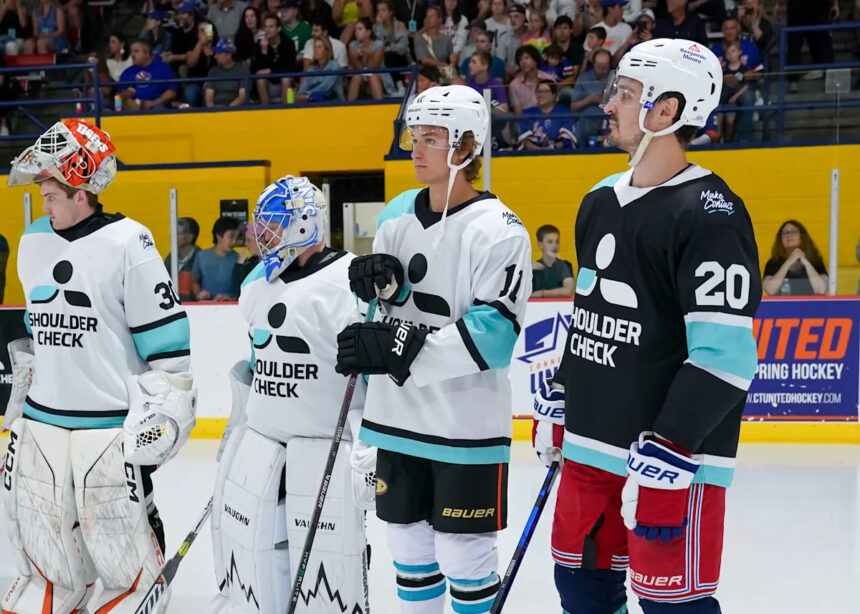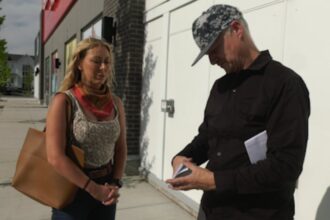In a sport known for its physical contact, a new initiative is encouraging hockey players to connect in a different way—through conversations about mental health. The Shoulder Check movement, gaining momentum across Canada’s hockey community, is transforming the ice rink into an unexpected venue for mental health advocacy.
“Hockey culture has traditionally been one where you keep your head up and push through adversity silently,” explains Morgan McNeill, founder of The Shoulder Check and former junior hockey player. “We’re trying to flip that narrative by showing that reaching out for support isn’t weakness—it’s actually one of the toughest plays you can make.”
The initiative began after McNeill lost a former teammate to suicide in 2021. What started as a small tribute has grown into a nationwide movement that’s attracted support from NHL players, junior leagues, and grassroots organizations across Canada.
At the heart of The Shoulder Check is a simple but powerful concept: encouraging players to regularly check in with teammates about their mental well-being, just as naturally as they would perform a shoulder check on the ice. The organization has developed resources specifically tailored to hockey’s unique culture, using familiar terminology and scenarios that resonate with players at all levels.
“We’ve seen a 47% increase in mental health resource utilization among teams that have implemented our program,” notes Dr. Samantha Patel, sports psychologist and advisor to The Shoulder Check. “The data shows that when these conversations become normalized within team environments, players become significantly more likely to seek help when struggling.”
The timing couldn’t be more critical. According to recent statistics from the Canadian Mental Health Association, young male athletes show particularly concerning rates of untreated mental health conditions, with many citing fear of appearing weak as a primary barrier to seeking support.
Toronto Maple Leafs forward Kyle Danvers, who recently became an ambassador for the program, shared his perspective: “Throughout my career, I’ve seen too many guys suffering in silence. What makes this program different is that it’s designed by hockey people who understand our world. It doesn’t feel like some outside group telling us what to do—it speaks our language.”
The movement extends beyond professional ranks, with particular emphasis on youth hockey programs where mental health habits are formed. Coaches are being trained to facilitate appropriate conversations and recognize warning signs, creating an environment where young players learn that mental resilience includes asking for help.
“We’re seeing cultural change happen in real time,” says McNeill. “Teams are starting to measure success not just by wins and losses, but by how well they support each other through challenges both on and off the ice.”
The initiative has also caught attention in the business world, with several corporate wellness programs adapting The Shoulder Check’s framework for workplace settings. This crossover suggests the program’s potential impact beyond sports.
As winter approaches and hockey season intensifies across the country, The Shoulder Check plans to expand its reach through partnerships with provincial hockey associations and an enhanced digital presence. Their goal is ambitious but clear: to make mental health check-ins as routine as physical ones in hockey culture.
The question now facing Canada’s national sport: Can a game that has long celebrated physical toughness become equally known for emotional courage? If The Shoulder Check’s growing influence is any indication, that transformation may already be underway.


















